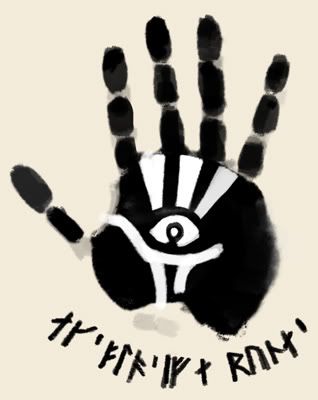
Nekrós-Manteia : lit. Dead body-prophecy/divination
Necromancy – A form of arcane magic in which case the practitioner seeks to raise the spirit of a deceased person, either corporally or incorporally, for the purpose of divination.
Word creep has been somewhat unkind to the practitioners of my art, a once valid (although pretty useless, the dead normally failed to see far enough into their own futures to avoid becoming dead, why should we expect them to be any better once they've shuffled off our mortal plane?) method of divining the future has become one of the most despised and misunderstood schools of arcane magic.
Even the old staples, once a core part of any necromancers remit, have fled from the title. The curing of wounds, regeneration and even the act of raising the dead back to life have rather handily been welcomed into the Conjuration school.
One assumes that this took place to save the blushes of our dear sweet friends in the rich temples, no doubt the fact that they frequently used necromantic magic irked them. Now that it's safely considered Conjuration they can use it without stigma or fear, despite it being exactly the same thing.
I hope that this tome, should I ever decide to publish, will go some way toward allowing necromancers such as myself to step out from the shadows and reclaim our besmirched title from the selection of freaks and rejects who prefer the company of zombie armies to a nice social chat.

Comment